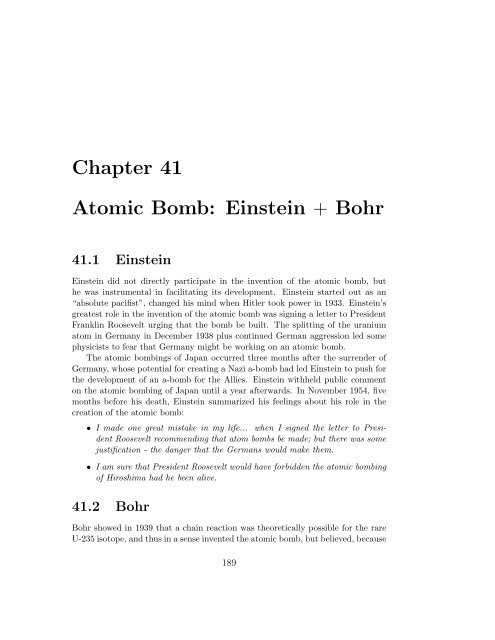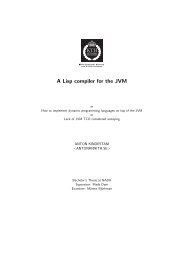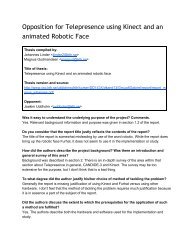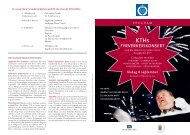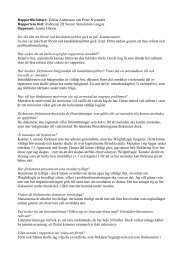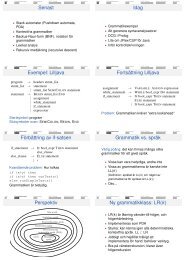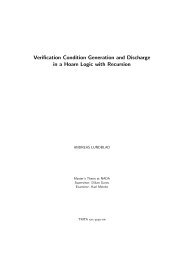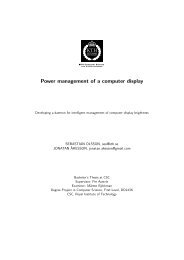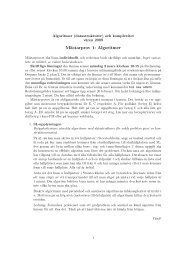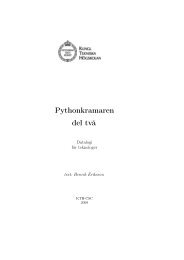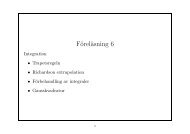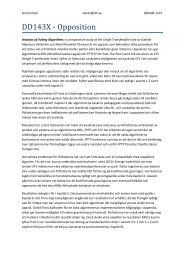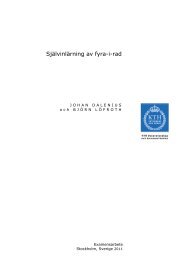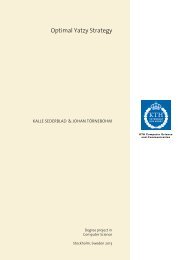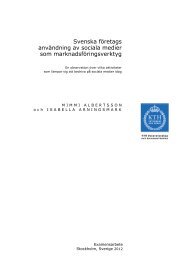Dr Faustus of Modern Physics - Department of Speech, Music and ...
Dr Faustus of Modern Physics - Department of Speech, Music and ...
Dr Faustus of Modern Physics - Department of Speech, Music and ...
Create successful ePaper yourself
Turn your PDF publications into a flip-book with our unique Google optimized e-Paper software.
Chapter 41<br />
Atomic Bomb: Einstein + Bohr<br />
41.1 Einstein<br />
Einstein did not directly participate in the invention <strong>of</strong> the atomic bomb, but<br />
he was instrumental in facilitating its development. Einstein started out as an<br />
“absolute pacifist”, changed his mind when Hitler took power in 1933. Einstein’s<br />
greatest role in the invention <strong>of</strong> the atomic bomb was signing a letter to President<br />
Franklin Roosevelt urging that the bomb be built. The splitting <strong>of</strong> the uranium<br />
atom in Germany in December 1938 plus continued German aggression led some<br />
physicists to fear that Germany might be working on an atomic bomb.<br />
The atomic bombings <strong>of</strong> Japan occurred three months after the surrender <strong>of</strong><br />
Germany, whose potential for creating a Nazi a-bomb had led Einstein to push for<br />
the development <strong>of</strong> an a-bomb for the Allies. Einstein withheld public comment<br />
on the atomic bombing <strong>of</strong> Japan until a year afterwards. In November 1954, five<br />
months before his death, Einstein summarized his feelings about his role in the<br />
creation <strong>of</strong> the atomic bomb:<br />
• I made one great mistake in my life... when I signed the letter to President<br />
Roosevelt recommending that atom bombs be made; but there was some<br />
justification - the danger that the Germans would make them.<br />
• I am sure that President Roosevelt would have forbidden the atomic bombing<br />
<strong>of</strong> Hiroshima had he been alive.<br />
41.2 Bohr<br />
Bohr showed in 1939 that a chain reaction was theoretically possible for the rare<br />
U-235 isotope, <strong>and</strong> thus in a sense invented the atomic bomb, but believed, because<br />
189


